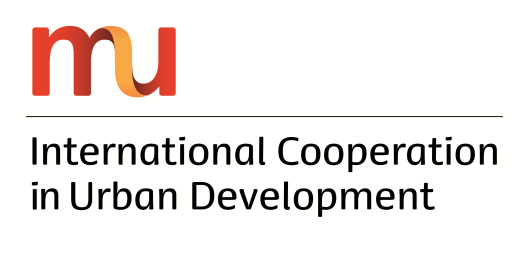As a part of its remit, the MU Consortium sustains and improves its successful collaboration with numerous prestigious academic and non-academic institutes around the globe. Both national and global networks continue to bring enriching and rewarding results. The map below shows the current global partnership network.


PACTE Laboratoire de sciences sociales
Pacte, a social science laboratory, is a joint research unit of CNRS, Université Grenoble Alpes and Sciences Po Grenoble located mainly on the Grenoble Alpes university site. Its members are focused on the construction of common languages and transdiciplinary knowledge on the transformations of our societies in their political, territorial, sociological and ecological dimensions. The laboratory places interdisciplinarity at the heart of its practices, by sharing and comparing methods, epistemologies, and common grounds. Pacte brings together geographers, political scientists, sociologists and urban planners, as well as economists and historians.

Urban Morphosis Lab
Urban Morphosis Lab is a research laboratory and networking platform based at TU Darmstadt. The lab has been founded by the alumni of the Mundus Urbano programme. In its focus are investigations of the varied manifestations in rapid urbanisation and its scope within the metamorphosing urban landscape.

EMA Erasmus Mundus Association
The Erasmus Mundus Association (EMA) offers international professional and personal network for Erasmus Mundus students and graduates. Members can join the professional networks and service teams to network and become active within the association. Jobs board and special entrepreneurship section are offered to our members. EMA members are ambassadors of the Erasmus Mundus. They share the idea of international education and spread the message around the world. Since its foudation EMA members have initiated or taken part in over 150 fairs, information seminars and promotional activities worldwide, using the promotional materials of EMA. EMA serves a channel of communication for students, alumni, universities and the European Commission. A course quality advisory board has been established to respond to the suggestions of the students.

URBANgrad
The Graduate School of Urban Studies (URBANgrad) is an interdisciplinary, central academic institution of the Darmstadt University of Technology. The objective of the graduate school’s PhD training program is to generate individuals, high quality, internationally acknowledged research in the field of urban studies. The graduate school’s structured working program offers doctoral students the opportunity to complete their dissertation within a period of three years of intensive work, supported by at least two professors. URBANgrad provides its PhD students with internationally competitive research conditions.

PhD programme “Urban Infrastructures in Transition”
The PhD programme “Urban Infrastructures in Transition” investigates transformations of urban infrastructures in Sub-Saharan Africa, the region with the world’s highest rate of urbanization. Research is focused on developments in the East African cities of Dar es Salaam (Tanzania) and Nairobi (Kenya). In particular, it highlights current challenges posed by urban infrastructures, including the supply and use of water, energy, sewerage, transport and telecommunication services. The programme has been funded by the Hans Böckler Foundation since October 2014.
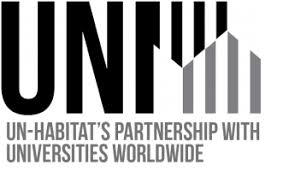
Habitat UNI
UNI (previously HPUI – Habitat Partner University Initiative) was introduced as a means of promoting cooperation between UN-Habitat and institutions of higher education, as well as facilitating exchange and cooperation among universities globally. UNI promotes universities becoming closer partners of cities, actively engaged in problem solving, thus closing the gap between academia and practice and encouraging collaborative learning. UNI promotes and facilitates the dissemination of educational and research products of its members and involve scholars, researchers and students in a number of activities. The collaborations aspire to create the next generation of urban leaders, managers, researchers and practitioners. UN-Habitat acts as a catalyst, facilitating partnerships between universities and other agenda partners.
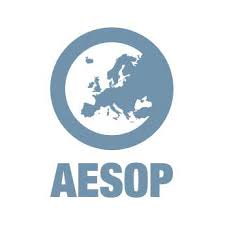
AESOP
With over 150 members, AESOP is the only representation of planning schools in Europe. Given this unique position, AESOP strengthens its profile as a professional body. AESOP mobilizes its resources, taking a leading role and entering its expertise into ongoing debates and initiatives regarding planning education and planning qualifications of future professional bodies, politicians and all other key stakeholders in spatial and urban development and management across Europe.
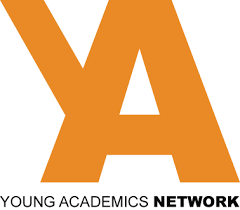
AESOP YA
The AESOP Young Academics (YA) is an AESOP working group in particular addressed at planners who have only recently entered the academic world: PhD students, postdocs, people starting academic positions. The activities of the AESOP YA network are complementary to other activities that are being deployed within AESOP as a whole. Its core aims are: making AESOP a challenging environment for young academics, forming a network of young academics within AESOP, Initiating activities for young academics, making the AESOP congress more interesting for young academics,etc.

Master course “Urban Agglomerations”
The Master Course “Urban Agglomerations” (M. Sc.) offers an international and interdisciplinary formation in sustainable planning, development, management and operation of city-regions and large agglomerations. The Master Programme has a strong international orientation. It is implemented by Frankfurt University of Applied Sciences, Germany, in cooperation with renowned international partner universities for an international exchange course in the third semester. “Urban Agglomerations” is a 2-years full-time course. The course is completely taught in English. The programme leads to the international academic degree of a “Master of Science” (M.Sc.).
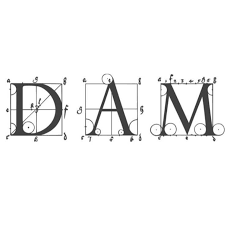
DAM Deutsches Architekturmuseum
The German Museum of Architecture (DAM) is seen as one of the best addresses in Europe for information about architecture and its history. The Cologne-based architect, Oswald Mathias Ungers, designed the DAM as a ‘house in a house’, creating the largest exhibit and a symbol of constructional art. The focus is on several large temporary exhibitions, which the DAM dedicates every year to modern and contemporary architecture in Germany and abroad. Conferences, symposiums, photo exhibitions and lectures complete the programme.

DAAD
The DAAD is the world’s largest funding organisation for the international exchange of students and researchers. Since it was founded in 1925, more than 1.9 million scholars in Germany and abroad have received DAAD funding. It is a registered association and its members are German institutions of higher education and student bodies. Its activities go far beyond simply awarding grants and scholarships. The DAAD supports the internationalisation of German universities, promotes German studies and the German language abroad, assists developing countries in establishing effective universities and advises decision makers on matters of cultural, education and development policy.
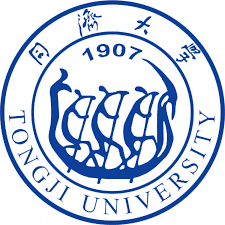
Tongji University, China
Tongji University is one of the leading universities in China underdirect administration of Ministry of Education. With a history of over a century, Tongji has valued the balanced development of four functions, i.e. education, research, outreach, and culture inheritance and innovation. Since 1978, “two transforms” were launched, namely, the transforming to an international university by restoring links to Germany, and the transforming from a university focusing mainly on civil engineering to multi-disciplinary engineering university. By 2007 when it was celebrating its centennial, Tongji had become a comprehensive, international, research-oriented university with distinct features and global influence. In 2013, the university proposed its vision of “a sustainability-oriented, world-class university”. The university now covers 10 broad categories of academic disciplines, including engineering, science, medicine, management, economics, philosophy, literature, law, education and arts.
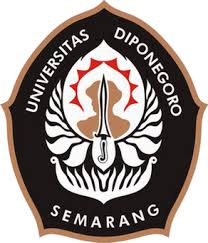
UNDIP Diponegoro University, Indonesia
Diponegoro University (Undip) is a prominent university, located in Semarang, the capital of Central Java, and is considered as the best university in Semarang. The name of Diponegoro University was taken after the name of a famous Indonesian hero, Pangeran Diponegoro, who steadfastly fought the Dutch colonialism, and whose spirit was mostly felt by the people in Central Java. It is this spirit – the spirit to set our nation free from any dependency – that is hoped to be carried on in education field through Diponegoro University to develop research and education in science and technology and their application for people welfare. Today, the university consists in 11 faculties and in 2009 it gains a recognition as one of the best universities in Indonesia and one of World Class Universities based on the ranking made by Time High Education (THE).

ACTUS
ACTUS is a research project that aims to investigate everyday experiences of solid waste and sanitation in peri-urban areas in Dar es Salaam, Tanzania. The overall goal of ACTUS is to discern the relationship between urban infrastructure systems, pro-poor growth and climate hazards. On one side, the research investigates how the lack of integrated solid waste and wastewater management adds to the existing vulnerabilities of communities settled in hazard prone areas. On the other side, ACTUS explores self-organization and creativity and how coping mechanisms and local technologies that may serve as a stimulus for reducing risks, intensifying income and building assets.
MAD
Center for Spatial Justice (Mekanda Adalet Derneği, MAD) is a registered civil society organization working with the intention of living in fairer, more democratic, and ecological urban and rural spaces; to produce cross-disciplinary work; to gather, accumulate and share the knowledge that is innovative, qualified and public. Our Center whose team consists of architects, urban planners, legal experts, artists, videographers, designers, documentarists, and social scientists, brings together transnational knowledge and cross-disciplinary expertise with local communities, to help to (re-)produce spaces and practices of hope.
Against the expansion of top-down spatial interventions, aggressive mega projects, urban gentrification processes, and extraction and energy infrastructures in urban and rural spaces, we work with civil society organizations, grassroots communities, activists, students, academics and journalists. We push for an agenda to recognize the right to space and offer a common platform that would empower disenfranchised segments and agents of the civil society by adopting a wide range of methodologies including but not limited to guided walks, data visualization, action-research, video-documentaries, educational activities, and participatory design workshops.
